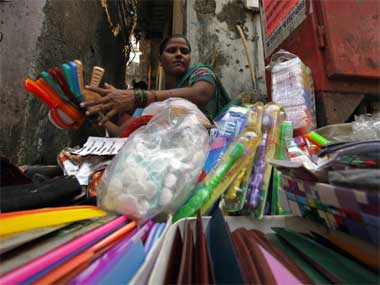Hyderabad: The Microfinance Institutions Network (MFIN), a self-regulating body of Microfinance Institutions, has warned that the cash-starved sector will be severely impacted if the new draft guidelines issued by the Reserve Bank of India on securitisation of loan portfolios are implemented.
The MFIN board will hold a meeting on October 10 to discuss the impact of the new guidelines and will make a presentation to the RBI, asking it to reconsider its decision, said President of MFIN, Vijay Mahajan.
Last week, the RBI released a revised draft of the securitisation guidelines. In the case of microfinance loans, the minimum holding period of the loan before securitisation will be six months from the due date of the first installment.
[caption id=“attachment_97490” align=“alignleft” width=“380” caption=“Reuters”]
 [/caption]Securitisation is the process of converting existing assets, or future cash flows, into marketable securities. The microfinance industry has been in the practice of assigning repayments from borrowers to investors in securities.
[/caption]Securitisation is the process of converting existing assets, or future cash flows, into marketable securities. The microfinance industry has been in the practice of assigning repayments from borrowers to investors in securities.
Currently, RBI allows securitisation of loans held by the NBFCS after three months from the first installment. A typical MFI loan spreads across one year, with a monthly or weekly repayment cycle.
“From the point of view of risk management, it definitely is ok. However, the RBI has to balance between some additional liquidity facilities for MFIs at this stage. As long as the quality of the asset is good, three months or six months does not make that much of difference,” Mahajan said.
“We will be requesting the RBI, for the transitional period, till the banking sector lending to MFIs is restored to normalcy – at least one to two years – they should consider three months’ tenure for a year-long loan and six months for a longer tenure,” sad Padmaja Reddy, the promoter of Spandana Sphoorty Financial.
In this regard, Reddy pointed out that the microfinance sector has been feeling the heat from banks and other financial institutions after the Andhra Pradesh government introduced a Microfinance Act to regulate the sector, last year.
Andhra Pradesh accounted for almost 30 per cent of the microfinance lending in the country before the new Microfinance Act was implemented in the state.
)